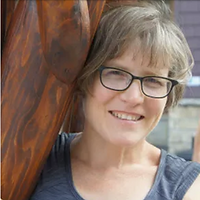

Master the big trip
and get certified*
The compounds
A deep dive into the classic compounds and their impact
The science
What the research says about small and large doses
Trip-sitting
Tactics for guiding others based on best practices
* Approved by the Oregon Board of Naturopathic Medicine for 8 hours of Continuing Education (CE), including 6 pharmacy hours

Get 1 free class on guiding others

Get Trip Sitting: The Basics, a free class on psychedelic guiding
Curriculum
3 powerful modules with 11 in-depth classes to take you from zero to hero
Module 1: The Compounds







Examine microdosing LSD and psilocybin. Analyze real case studies, dosage protocols, and existing research findings. Learn about the mechanisms of microdosing, safety considerations, and potential drug interactions.
A high level overview of important considerations as you approach a trip, including ideal settings, suggested materials for research beforehand. It also includes discussion on dosage, drug interactions, and "flight instructions."
Dive into the pharmacology of classic psychedelics, like psilocybin and LSD. Understand their effects on brain function, the default mode network, and brain entropy. Discover the connection between mystical experiences, spirituality, and healing.
Learn about ketamine's history, its action against depression, and compare it with SSRIs. Explore various administration methods, from microdoses to psychedelic doses, and understand its potential in treating mood disorders through real patient cases.
Discover MDMA's history and its synergy with psychotherapy. Review its effectiveness in treating PTSD, social anxiety, and mood disorders, supported by study results and video clips from therapy sessions.
A deeper dive into trip sitting, including setting, handling common situations, and minimizing risks of an unpleasant trip. Learn about creating healing spaces, applying psychotherapy models like IFS, mastering integration work, and dosage guidelines.
Module 2: Navigating the Trip


This warm-up class on trip-sitting covers the importance of supporting vs leading. Learn how to provide a safe space and embrace the potentially difficult emotions that may surface. Physical touch, burnout, and compassion fatigue are also covered.
This class covers psychedelic integration and why it’s important. Learn what issues may surface, support resources, and integration tools. The class also covers examples of long term outcomes and important considerations for both the traveler and the trip-sitter.
Module 3: Real World Applications

Explore how psychedelics address traumas underlying addiction. Review treatments for alcoholism, smoking, and substance abuse, with a focus on ayahuasca and ibogaine. Learn safety protocols, risks, and basic troubleshooting tips for psychedelic use.
A crash course on psychedelic harm reduction, how to prepare for the most meaningful psychedelic experience possible, and how to troubleshoot when things don’t go as planned. An overview that's applicable for recreational, ceremonial, or clinical settings.

Experience the holistic elements of psychedelic sessions in this interactive module. Set intentions, immerse in music, and reflect with journaling prompts. Requires a journal, pen, quiet setting, eye mask, and headphones for a 30-minute journey.

Dr. Erica Zelfand
Family doctor and course instructor
She is a licensed family doctor specializing in integrative mental health and functional medicine. Dr. Zelfand is a ketamine prescriber, facilitator of therapeutic consciousness-exploration, acclaimed international speaker, and medical writer. She also trained in empathogen-assisted psychotherapy through MAPS. Dr. Zelfand is a lead educator in the nation’s first licensed mushroom facilitator training program, a volunteer medical lead, and a workshop facilitator
Bonus benefits
-min.png)
Meet like-minded people in our private Slack. Ask questions and connect with peers

Guidance on sourcing and cultivating mushrooms responsibly
-min.png)
A 15-page pdf for solo trips. Includes detailed guidance and the #1 tip for a safe journey

An 8-page guide for building your custom playlist and a breakdown of the 4 stages of the trip

Course preview
What our customers say

Elyse, Denver
"Psy Science" inspired me so deeply I decided to make an entire career shift

Jeff, Vancouver
This course is a fantastic way for practitioners to learn about psychedelic-assisted therapy

Heidi, Portland
It was both intellectually exciting & emotionally inspiring
FAQ
1. Who should enroll in the Psy Science course?
This course is ideal for anyone interested in deepening their understanding of psychedelics, whether for personal enlightenment or to guide others safely through their psychedelic journeys.
2. What topics does the course cover?
The course provides comprehensive insights into psychedelic compounds, their effects, safe practices in trip-sitting, and the integration of psychedelic experiences.
3. How does Psy Science enhance my understanding of psychedelics?
By merging scientific knowledge with spiritual insights, the course demystifies psychedelics and promotes a holistic approach to their use and therapeutic potential.
4. What makes this course different from other psychedelic education programs?
Psy Science uniquely blends rigorous scientific study with practical, real-world applications, preparing participants for both self-exploration and guiding others.
5. Is prior experience with psychedelics required?
No prior experience is needed. The course caters to all levels, from beginners to those with some experience in psychedelic use.
6. Does the course provide certification for trip-sitting?
Yes, upon completion of the course and passing the mandatory test, you will receive a custom certificate and qualify for 8 CE credit hours.
7. Can I apply these learnings to professional settings?
Yes, the course equips you with knowledge applicable in various professional and therapeutic contexts, enhancing your ability to support others in their psychedelic journeys.



